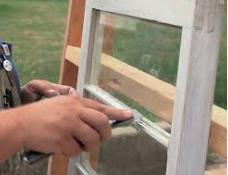Warranty Inspection

Home Warrenty/Home Inspection
A home warranty check, often referred to as a home inspection, is typically conducted to assess the condition of a property before it is sold. Home inspections are voluntary but highly recommended for both buyers and sellers to identify any potential issues with the property and ensure transparency in the transaction process. Here are some reasons why a home warranty check is important:
-
Identify Structural and Mechanical Issues: A home inspection can reveal any structural defects, such as cracks in the foundation or walls, as well as issues with mechanical systems like plumbing, electrical, HVAC (heating, ventilation, and air conditioning), and roofing. Identifying these issues early can help prevent costly repairs or surprises for the buyer after the purchase.
-
Ensure Safety and Compliance: Inspectors can assess the safety of the property by checking for hazards such as faulty wiring, inadequate ventilation, or unsafe staircases. They can also ensure that the property complies with building codes and regulations, which is essential for the safety and well-being of the occupants.
-
Negotiation Tool: The findings of a home inspection report can be used as a negotiation tool during the sales process. Depending on the severity of any issues uncovered, buyers may negotiate with sellers to either lower the sale price or address the repairs before finalizing the purchase.
-
Peace of Mind: For buyers, a home inspection provides peace of mind knowing that they are making an informed decision about the property they are purchasing. For sellers, it can provide reassurance that their property is in good condition and help expedite the sale process.
When the inspector comes to conduct the home warranty check, here are some things you should know or do:
-
Be Present: If possible, be present during the home inspection so that you can ask questions and gain a better understanding of any issues identified by the inspector.
-
Prepare the Property: Ensure that the property is easily accessible and that utilities such as electricity, water, and gas are turned on for the inspection. Clear any clutter or obstructions that could impede the inspector's access to different areas of the property.
-
Provide Documentation: Provide the inspector with any documentation related to the property, such as maintenance records, renovation permits, or warranty information for appliances or systems.
-
Ask Questions: Don't hesitate to ask the inspector questions about the inspection process or any concerns you may have about the property. A good inspector will be happy to provide explanations and recommendations.
-
Review the Report: After the inspection, review the inspection report carefully to understand the findings and any recommendations provided by the inspector. If there are any areas of concern, discuss them with your real estate agent and consider your options for addressing them.
Overall, a home warranty check is an important step in the home buying or selling process in South Africa, helping to ensure that the transaction proceeds smoothly and that both parties are satisfied with the outcome.

